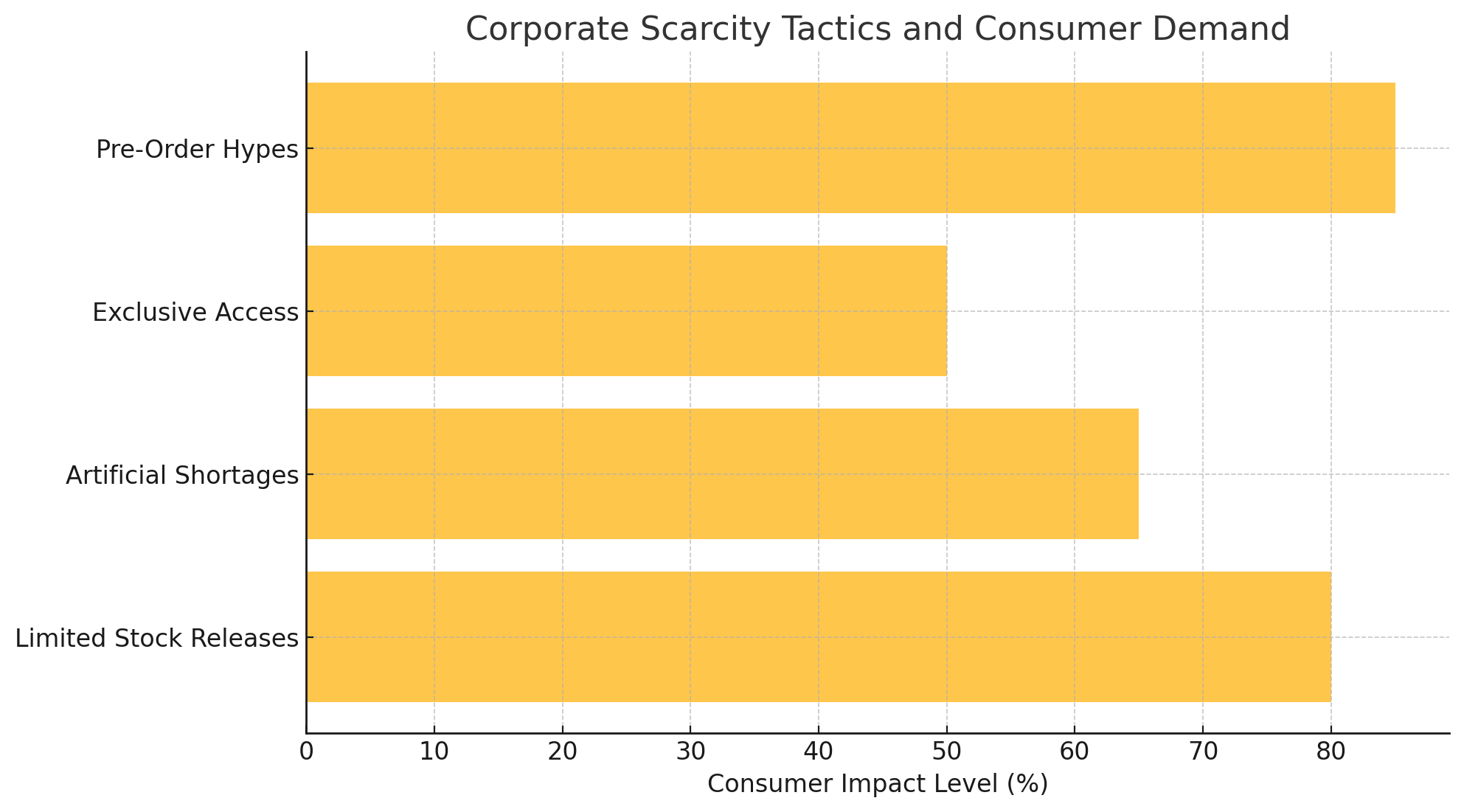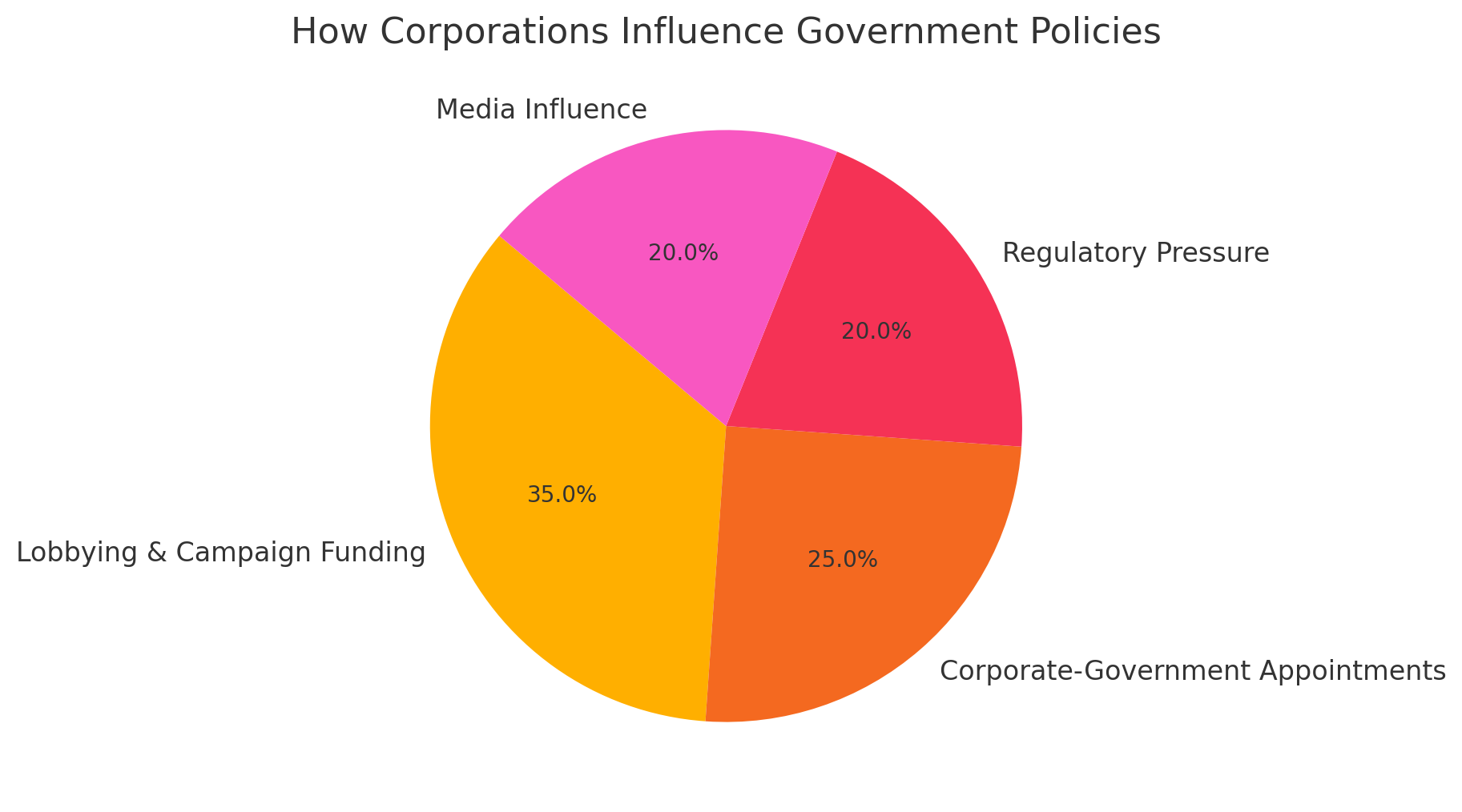Case Study: How Big Oil Influenced U.S. Foreign Policy
Major oil corporations like ExxonMobil and Chevron have played a critical role in shaping U.S. foreign and economic policies.
- In the 2000s, U.S. foreign policy in the Middle East—especially the Iraq War—was heavily influenced by oil industry interests rather than just political strategy.
- High-ranking government officials, including former ExxonMobil CEO Rex Tillerson, have directly transitioned into policymaking roles.
- Energy policies during various U.S. administrations have often favored corporate energy interests over environmental or public welfare concerns.
Conclusion:
Multinational corporations wield immense influence over economic policies by lobbying, funding political campaigns, and positioning their executives in government roles.
How Corporations Create Artificial Shortages to Control Markets
Tactic: Scarcity as a Business Strategy
Some corporations deliberately manipulate supply chains to create artificial scarcity, which allows them to control pricing and consumer behavior.

Case Study: Apple’s iPhone Supply Strategy
Apple has mastered the art of leveraging scarcity to fuel demand.
- Every year, Apple limits the initial supply of new iPhones, creating a sense of urgency among consumers.
- This controlled shortage drives up secondary market prices and increases brand desirability.
- The artificial scarcity leads to higher consumer engagement and pre-orders, ensuring continued demand.

Conclusion:
The illusion of limited availability is a well-orchestrated strategy that corporations use to manipulate market demand and maximize revenue.

Tactics for Dominating Consumer Behavior and Market Trends
How Do Major Brands Influence Consumer Decisions?
Corporations shape consumer behavior through strategies such as:
- Neuromarketing techniques that appeal to subconscious desires.
- Brand dependency, where consumers feel emotionally tied to specific brands.
- Incremental product changes to ensure repeat purchases.
Case Study: Coca-Cola’s Marketing Psychology
In 1985, Coca-Cola altered its formula and introduced "New Coke." The reaction was overwhelmingly negative.
- Consumers demanded the return of the original formula—which Coca-Cola later rebranded as "Coca-Cola Classic."
- The backlash created emotional attachment and nostalgic loyalty, boosting sales.
- This strategy strengthened consumer dependency on the original product, making Coca-Cola more dominant than before.
Conclusion:
Corporations don’t just sell products—they engineer consumer behavior to sustain long-term profitability.
Case Study: How McDonald's and Coca-Cola Conquered Emerging Markets
McDonald's and Coca-Cola successfully expanded into Asian, African, and Middle Eastern markets by adapting their strategies to local preferences.
How McDonald’s Entered India’s Market
- Problem: The majority of Indians do not eat beef due to religious beliefs.
- Solution: McDonald's localized its menu, offering vegetarian and chicken alternatives.
- Result: McDonald's established itself as a mainstream brand in one of the world's largest markets.
Conclusion:
Localization is key—corporations that adapt to local cultures and consumer habits dominate global markets more effectively.
Final Thoughts: Why Understanding These Strategies Matters
- Corporations are not just market players—they are economic architects influencing policies, controlling market conditions, and shaping consumer behavior.
- Strategies like artificial scarcity, lobbying, and behavioral conditioning are deliberate mechanisms for power and profit maximization.
- To navigate global business, understanding these corporate tactics is essential.
Write your comment.